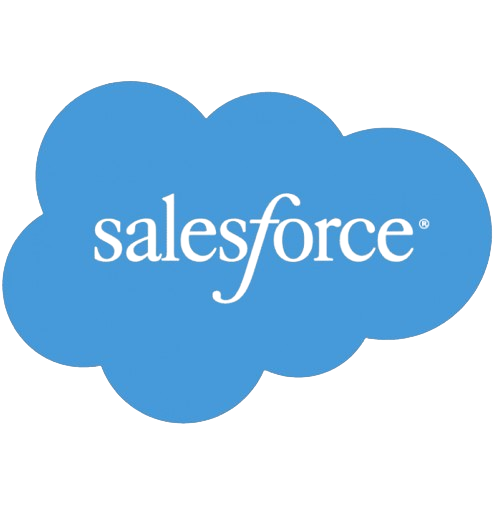Leveraging CRM Data Mining: Unveiling the Power of Customer Relationships
Updated on February 19, 2026
In the realm of modern business strategies, the symbiotic relationship between Customer Relationship Management (CRM) and data mining stands as a cornerstone for organizational success. Today, both small and large enterprises are harnessing the potential of CRM software embedded with data mining capabilities to fortify customer relations, enrich profitability, and gain unparalleled insights into consumer behavior. Let’s delve deeper into the pivotal role of data mining within CRM and understand how this synergy yields unprecedented benefits for businesses.
Understanding the Synergy: CRM and Data Mining
CRM systems are pivotal tools enabling businesses to manage sales, and customer contacts, and streamline workflow processes. Data mining, on the other hand, involves the collection, storage, and analysis of voluminous data sets to unveil hidden information and patterns. This collaboration empowers businesses to leverage historical data for strategic decision-making.
What is Data Mining?
Data Mining involves gathering, storing, and analyzing extensive data for statistical insights and discovering new information through pattern identification. Businesses today widely adopt data mining techniques to leverage historical data for improved strategies.
CRM-integrated platforms, like billing software, bolster customer relations. Implementing data mining in CRM software aids in gathering, processing, and utilizing valuable data for insights into customer behavior, and industry trends, and enhancing business strategies. Simply put, data mining helps understand fluctuations in sales and pinpoint weaknesses in business offerings.
The primary aim of data mining spans various practices like sales, marketing, segmentation, trend analysis, surveillance, and fraud detection.
Techniques of Data Mining
Two key data mining techniques include Predictive (predicting variables’ effectiveness) and Descriptive (finding patterns and correlations) data mining, encompassing four fundamental tasks:
- Clustering: Categorizing similar data into classes.
- Classification: Predicting the target class for each case in the data.
- Regression: Forecasting numerical values for datasets, useful in marketing and financial forecasting.
- Association rule learning: Demonstrating relationships between data items in large databases through hypothetical propositions.
The Role of Data Mining in CRM
Data mining in CRM involves the application of techniques to gather and process relevant information. This information, obtained from sources like billing software solutions, aids in understanding customer behavior, industry trends, and purchasing patterns. Leveraging this information for business strategy development is a game-changer.
The Power of Data Mining
Data mining isn’t just about analyzing historical data; it’s a tool for comprehending fluctuations in sales, identifying strengths and weaknesses in business offerings, and understanding customer preferences. It consists of predictive and descriptive techniques, namely clustering, classification, regression, and association rule learning, which provide invaluable insights for decision-making.
Benefits of Data Mining in CRM
The advantages of implementing data mining in CRM are multifold:
Insightful Analysis:
Data mining, when integrated into CRM, allows for the comprehensive analysis of historical customer data. This analysis not only aids in retaining customers by understanding their past interactions but also contributes to market analysis and efficient risk management. By examining patterns and trends in customer behavior, businesses gain insights that help in tailoring services and predicting potential risks, thereby allowing for proactive and targeted decision-making.
Understanding Consumer Behavior:
Through data mining, businesses can uncover intricate shopping patterns and consumer behaviors. This understanding provides invaluable insights into how consumers perceive and interact with products and services. It allows companies to gauge consumer opinions, preferences, and tendencies, facilitating the customization of offerings to better suit their needs and desires.
Targeted Marketing Campaigns:
Accurate data models generated by data mining play a crucial role in developing targeted marketing strategies. By understanding customer preferences and behaviors, businesses can create more personalized and relevant marketing campaigns. Tailored offers, incentives, and communication-based on these insights enhance the effectiveness of marketing efforts, improving customer engagement and response rates.
Measuring Profitability:
Data mining helps in identifying the most profitable products or services within a business. Understanding the cost factors associated with these offerings is also crucial. This insight assists in optimizing customer retention strategies while simultaneously minimizing losses. By evaluating the profitability of different products or services, businesses can strategically focus on offerings that yield higher returns.
Enhanced Customer Loyalty:
By leveraging data mining insights, companies can reward consumer behavior effectively. Tailored incentives, personalized experiences, and targeted communication build a sense of appreciation among customers, thereby fostering both customer and brand loyalty. Acknowledging and rewarding loyal customers often results in strengthened long-term relationships.
Interpreting Market Trends:
Robust data mining tools enable businesses to predict and interpret future market trends. By analyzing historical data, businesses can foresee shifts in consumer behavior, industry patterns, and emerging markets. This proactive analysis assists in strategizing for future market demands, thereby providing a competitive edge in meeting evolving customer needs.
Competitive Edge:
In the current competitive landscape, data mining equips businesses with the ability to make precise and informed decisions. By leveraging data-driven insights, companies can stay ahead of the curve by anticipating customer needs, adapting quickly to market changes, and optimizing business strategies, thereby maintaining a competitive advantage in their industry.
Execution and Moving Forward
For a successful transformation in CRM processes, businesses must act upon insights gleaned from data mining. Implementing these insights with a robust execution plan can significantly enhance revenue and customer relationships.
Moving ahead, businesses looking to bolster their customer base and relationships must invest in CRM systems that not only accumulate accurate customer data but also organize, analyze, and provide crucial insights into consumer behavior and market trends. This investment will undoubtedly yield substantial returns in the competitive business landscape.
In conclusion, the amalgamation of CRM and data mining is not just a trend but a necessity in today’s data-driven business environment. Businesses that leverage data mining in CRM will undoubtedly thrive by enhancing customer relationships, streamlining operations, and making informed, strategic decisions.






